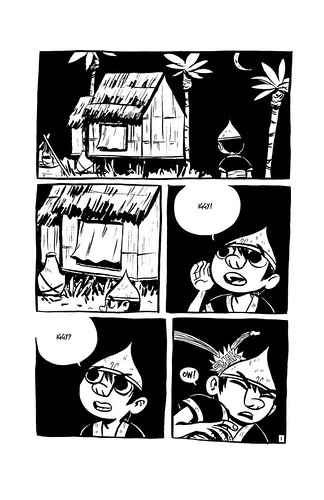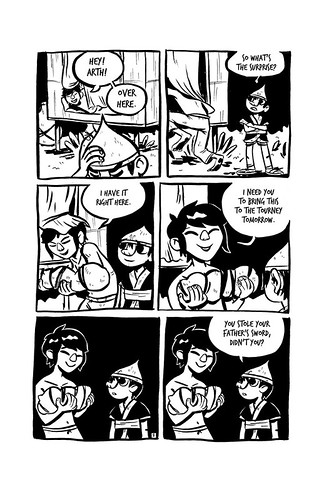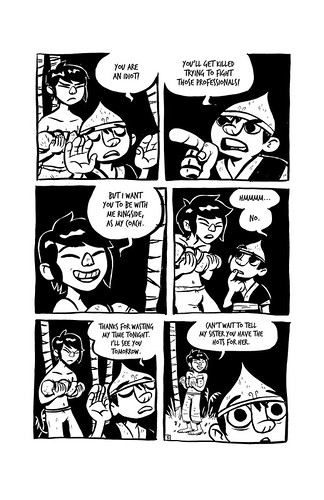Is she "La Presidente" or "La Presidenta"?
For my Theory and Criticism class I was asked to take one thing from this weeks readings, look it up and then go 6 steps of links to see where it took me. For better or for worse I started with Wikipedia and stayed there the whole time. This is what I read about:
I took the term "Mountain Arapesh" which is a term for a group of people in New Guinea. The section from our readings was discussing study of cultures and contamination of those cultures. The Arapesh group was used as an example. So...
1. I looked up "Mountain Arapesh" and got this link on Wikipedia:
http://en.wikipedia.org/wiki/Arapesh
It briefly discussed the Arapesh languages.
2. I then went to:
http://en.wikipedia.org/wiki/Niger-Congo_languages
This was a longer article about the many languages in the "Niger-Congo" group.
3. I was immediately interested in a short section about "Noun Class" so I went here:
http://en.wikipedia.org/wiki/Noun_class
I learned that noun classes are varied and pretty odd in many languages.
4. Because I learned Spanish about 15 years ago, I am particularly interested in "Grammatical Gender" so I clicked on that link:
http://en.wikipedia.org/wiki/Grammatical_gender
I was only vaguely aware that there were other ways to classify nouns than gender because the only other language I have learned was so heavily steeped in gender assignment to nouns.
5. So, of course I went right for the link about "Grammatical Gender" in Spanish:
http://en.wikipedia.org/wiki/Grammatical_gender_in_Spanish
I find it very interesting to read about the actual workings of Spanish. I learned it by speaking with natives so I often didn't learn the rules behind grammatical gender exceptions until much later. Often then rule comes from an old version of a word, or it's origin from another language.
6. Finally I ended up in "Gender Neutrality in Spanish and Portuguese":
http://en.wikipedia.org/wiki/Gender-neutrality_in_Spanish_and_Portuguese
Because Spanish (and Portuguese) have only 2 noun genders, male and female, they run into linguistic problems that other languages with a neuter gender (or some other system) don't ever face. In English, "Stewardess" has changed to "Flight Attendant" and "Mail Man" to "Mail Carrier". In Spanish, each word already has a gender, so they have tried different ways of making words gender neutral. One of the interesting ones I learned was an effort to use the "@" instead of "o" or "a" at the end of a word to keep it neutral. I find that really funny because I have no idea how it would be pronounced. I also find it interesting that some politicians are now saying using both the masculine and feminine forms (Señores and Señoras for example) when linguistically the plural masculine form also includes all females as well. Spanish already has one word that means both ladies and gentlemen, but might start using two words in order to sound fair and unbiased.
It was a pretty fun exercise that reminded me how much I loved learned Spanish and then using what I learned to communicate with native speakers. It would be great to do that again.




















